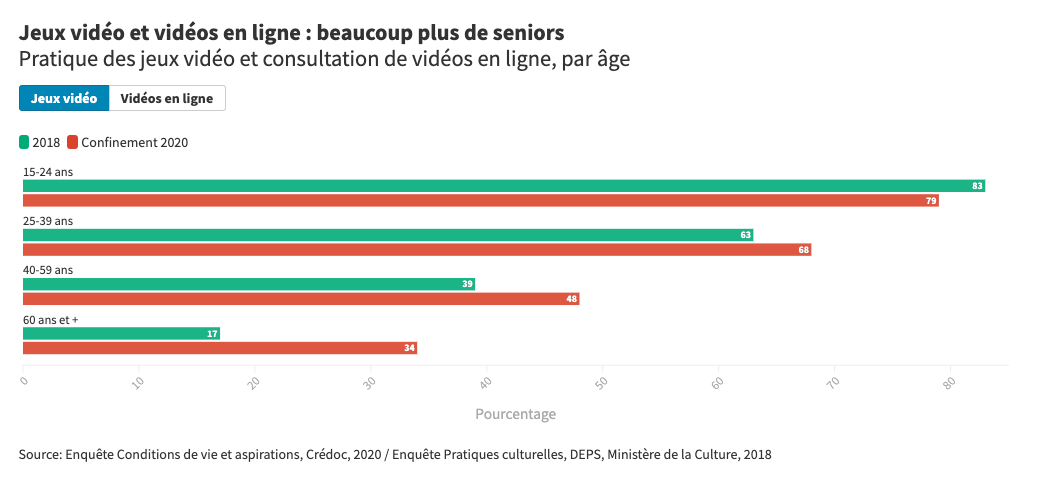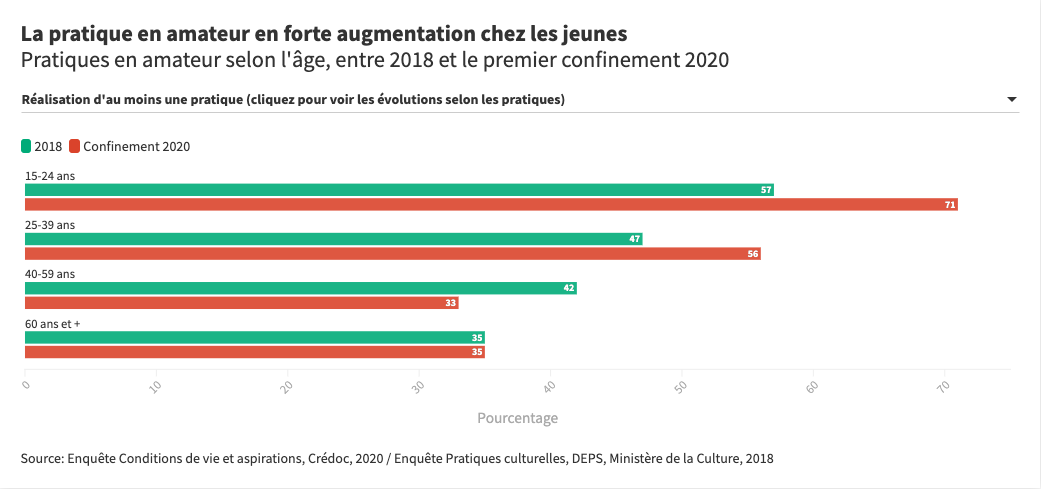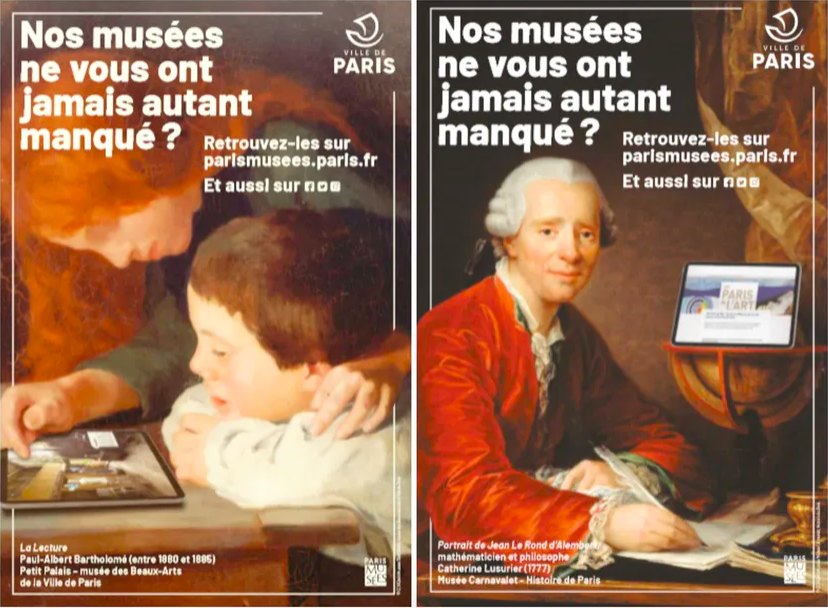COVID-19 pandemic has forced changes in the lifestyles of all people. It has also had a major impact on the economy, and social disparities widen in all directions. On the other hand, in France, it was found that the gap in cultural activities between generations and income is narrowed. The French Ministry of Culture conducted a survey on how to spend time during the lockdown for about two months from March 2020. The survey, which has been conducted regularly since 1978, was to take place during an unprecedented pandemic last year.
Notable from the findings is that people over the age of 60 have begun to enter the digital world. During the lockdown, older adults spent time online video distribution, online games, and social media. In the same survey in 2018, 17% of the respondents answered that they would play online games, but in 2020 it doubled to 34%. It seems that the number of people who started SNS from an isolated state seeking a connection with society has increased because they have no chance to meet children and friends. 12% of those over 60 who answered “I use SNS frequently” were 12% two years ago, it showed a big increase to 43%. In a report of the findings, sociologist Philippe Lombardo analyses “the need for physical inability to meet people and the changing image of digital.” The World Health Organization (WHO) has a slogan of “Play Apart Together” and actively promotes digital sociality and helps online games eliminate loneliness.
There have been changes in the practices of young people (15-24 years old) who have been familiar with digital culture and have spent a lot of time on SNS. The number of people in this group who practiced at least one cultural activity such as painting, photography, singing and dancing jumped to 71%, up 14% from two years ago. Many videos of singing on the windowsill have been posted on SNS. The number of users performing dance on TikTok has increased, so the background is that the number of young people who are incorporating cultural activities in real life for the purpose of posting on SNS. Among them, the most common answer was “I learned about photography,” and it seems that they tried to learn the technique during the lockdown in order to raise their image on SNS. In this field, about 35% of the people over the age of 60 were the same as usual. It can be seen that the gap in digital culture between generations has narrowed, with older adults moving toward digitalization and younger people practicing cultural activities.
The survey results also show the gap between white-collar and blue-collar cultural activities. Blue-collar workers who cannot telework during the lockdown are treated as closed due to a 70% salary guarantee from the government. After spending their leisure time at home, they can experience online virtual visits to museums and opera theaters. The results showed that they actively used cultural programs such as appreciation, science, astronomy, and historical research with their children. On the other hand, white-collar workers who continued teleworking were reluctant in cultural activities. There was a tendency to decrease in “reading,” which they are most enthusiastic about in general. The tiredness of teleworking in front of the screen all day seems to have left them away from digital in their free time.
During the lockdown, the City Hall of Paris launched a dedicated site to engage in cultural activities in a campaign to encourage virtual visits to closed museums. According to the results of a survey conducted by the French Ministry of Culture, the progress of digitization due to the pandemic has made it possible to improve “Democratization of Culture” regardless of educational background, income, or generation. However, it is unclear at this time whether these new cultural practices will continue after returning to normal life. The city of Paris and cultural institutions continue to make no mention of online service offerings. Sociologist Lombardo predicts, “it’s worth noting how much cultural activity will take hold in the future. Once you find the fun, you won’t let go of it so easily.” Older adults who have difficulty visiting museums for physical reasons, or families who have difficulty financially providing their children with a cultural program, do they have to give up the fun they find during the lockdown? The true “Democratization of Culture” depends on the policies of the government and cultural institutions after the end of the pandemic.





